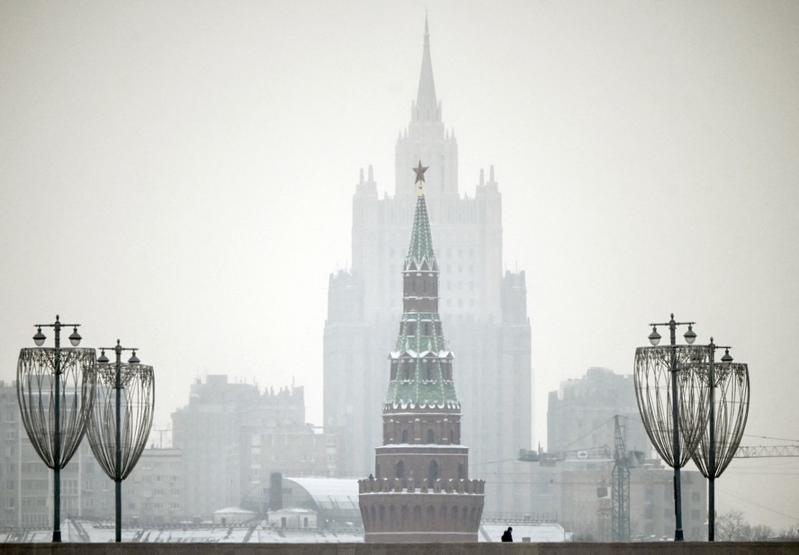 A man walks along a bridge in front of a Kremlin tower and the Russian Foreign Ministry building on the background in downtown Moscow on Jan 12, 2021. (ALEXANDER NEMENOV / AFP)
A man walks along a bridge in front of a Kremlin tower and the Russian Foreign Ministry building on the background in downtown Moscow on Jan 12, 2021. (ALEXANDER NEMENOV / AFP)
MOSCOW - The Russian Foreign Ministry urged the US administration "not to play with fire" after Washington on Tuesday announced sanctions against Russian individuals and entities over the alleged poisoning of Russian opposition leader Alexei Navalny.
In an online statement, the Russian Foreign Ministry called the US sanctions "a hostile anti-Russian attack" under an absurd pretext
In an online statement, the foreign ministry called the US sanctions "a hostile anti-Russian attack" under an absurd pretext.
ALSO READ: US imposes sanctions on Russia over poisoning of Navalny
"Entangled in its own internal problems, the White House is again trying to cultivate the image of an external enemy. We have repeatedly commented on this American policy, which is devoid of logic and meaning and only more and more worsens bilateral relations," it read.
The ministry said Russia will retaliate based on the principle of reciprocity and continue to resolutely defend its national interests.
The ministry asked the United States to honor its obligations and destroy chemical weapons, which Russia does not have since 2017.
READ MORE: Russian state prosecutors seek fine for Navalny in slander case
The United States has been deprived of the moral right to lecture others since it is a serial violator of international treaties and agreements in the field of arms control and non-proliferation, it said.
Kremlin spokesman Dmitry Peskov said on Wednesday that Moscow would hit back in a way that best served its interests.
“Of course it’s impossible not to apply the principle of reciprocity,” Peskov told reporters.
“We consider such decisions to be absurd, unjustified and most importantly, they have no effect or meaning,” he said. “We can only regret this and express our bewilderment.”
However, Peskov said the US sanctions would have no effect on the senior officials targeted because they are not allowed to travel outside Russia, own property abroad or hold foreign bank accounts anyway because of the sensitivity of their positions.
“This is practically a duplication of the restrictions these people face under Russian law, nothing more,” Peskov said, adding that sanctions targeting the entities would have more of a material effect.
With Reuters inputs


